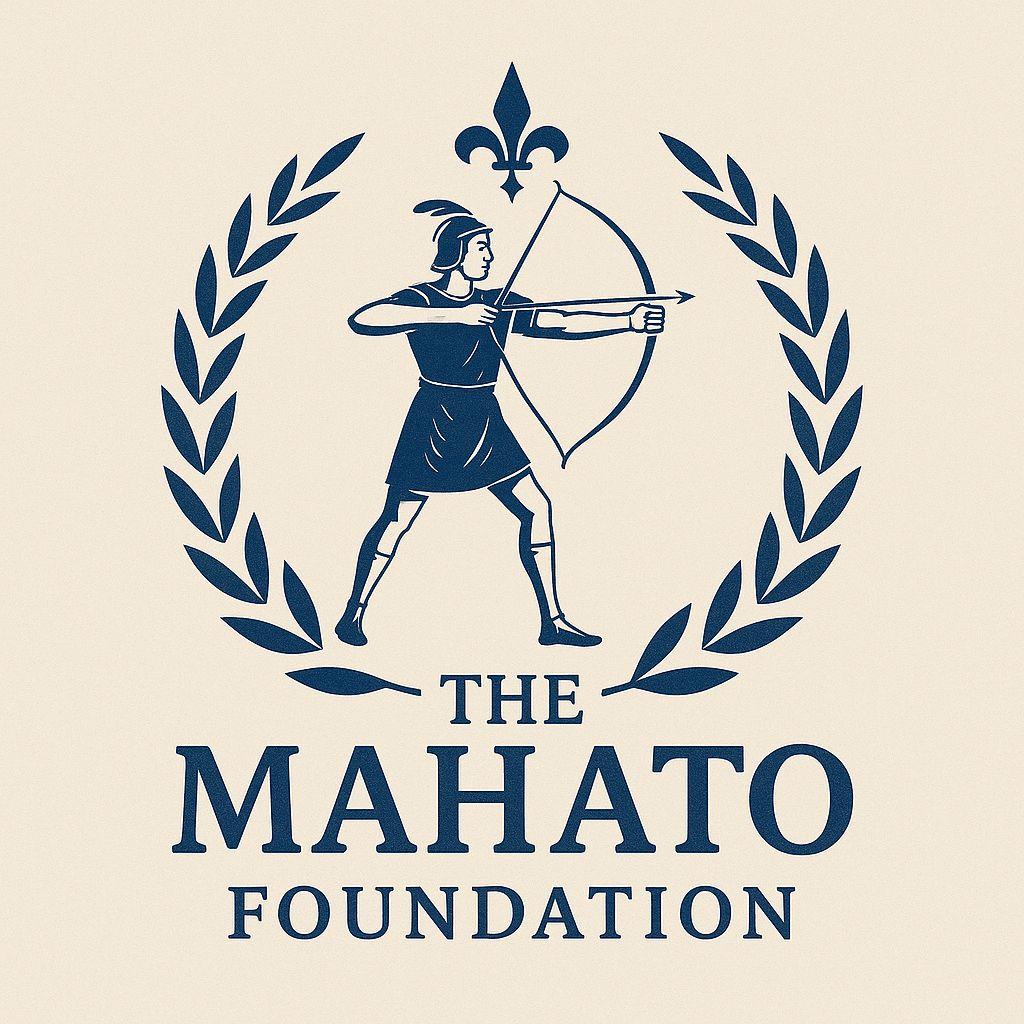
Shri . Balram Mahato
In the heart of Jharkhand, where the land whispers tales of resilience and heritage, a visionary named Shri Balram Mahato played a pivotal role in initiating transformative events. The year was 1950, a time when rural communities struggled with poverty, lack of education, and limited access to resources.
With an unwavering belief in the power of collective progress, Shri Balram Mahato laid the
groundwork for what would later become the Jharkhand Foundation, a beacon of hope for those in need.
Born into a family that deeply valued community service, Shri Balram Mahato witnessed firsthand the struggles of the underprivileged. He understood that true empowerment could only come through sustainable development—where education, livelihood, and social welfare go hand in hand. His vision was clear: to create a self-sufficient society that thrived on knowledge, skill, and cultural integrity.
Shri Balram Mahato's contributions began in East Singhbhum, a region rich in cultural heritage and industrial significance. From here, he initiated numerous efforts to uplift local communities and address social and economic disparities. He actively advocated for education, skill development, sustainable agriculture, and social welfare, recognizing these as essential pillars for long-term progress. In an extraordinary act of generosity, he donated vast tracts of his own land to provide housing and farming opportunities to struggling families, ensuring they had a stable foundation for growth. Additionally, he personally funded and initiated the development of essential roadways, connecting remote villages to markets, schools, and healthcare centers, facilitating progress and connectivity in the region.
Before his initiatives, Jharkhand had a rich history of movements striving for autonomy and the preservation of indigenous rights. The region witnessed several significant uprisings:
Chuar Rebellion (1767): Led by Jagannath Singh Patar, the Bhumij tribals revolted against the British East India Company's subjugation and imposition of taxes.
Tilka Majhi's Revolt (1771): Tilka Majhi, a Paharia leader in the Rajmahal Hills, led a rebellion against landlords and the British government.
Kol Rebellion (1832): The Kol tribes rose against British policies that disrupted their traditional socio-economic structures.
Santhal Rebellion (1855): Under the leadership of brothers Sidhu and Kanhu, the Santhals protested against exploitative practices and the loss of their lands.
Birsa Munda Revolt (1895-1900): Birsa Munda spearheaded a movement against British rule and missionary activities, aiming to establish Munda Raj and remove British government and missionaries.
These movements, rooted in the desire for self-governance and cultural preservation, set the stage for future endeavors toward autonomy. Shri Balram Mahato was deeply inspired by these struggles and dedicated his life to ensuring sustainable progress for his community.
His Legacy
- Education: Over 50,000 children benefited from literacy and vocational training programs.
- Livelihood Development: 10,000+ farmers adopted sustainable agricultural practices.
- Healthcare: 20,000+ individuals received essential healthcare services.
- Economic Growth: 5,000+ jobs created in small-scale industries, reducing urban migration.
- Disaster Relief: Extensive aid provided during floods, droughts, and land disputes.
- Environmental Conservation: Afforestation projects and water conservation initiatives to sustain natural resources.
A Vision for Sustainable Progress
With his efforts as a catalyst, the Jharkhand Foundation extended its hands to social welfare and charity, providing healthcare support, building community centers, and ensuring that marginalized communities had access to fundamental rights. Shri Balram Mahato believed in preserving the rich cultural and artistic heritage of Jharkhand, supporting local artisans, musicians, and traditional craftspeople to keep the state’s unique identity alive.
Today, the Jharkhand Foundation stands as a testament to his influence—an organization dedicated to holistic growth, social justice, and sustainable progress.
As we move forward, we carry with us the values instilled by Shri Balram Mahato—compassion, resilience, and an unyielding commitment to a better tomorrow. The journey that began in 1950 continues to inspire generations, ensuring that his dream of a prosperous and empowered Jharkhand lives on.
